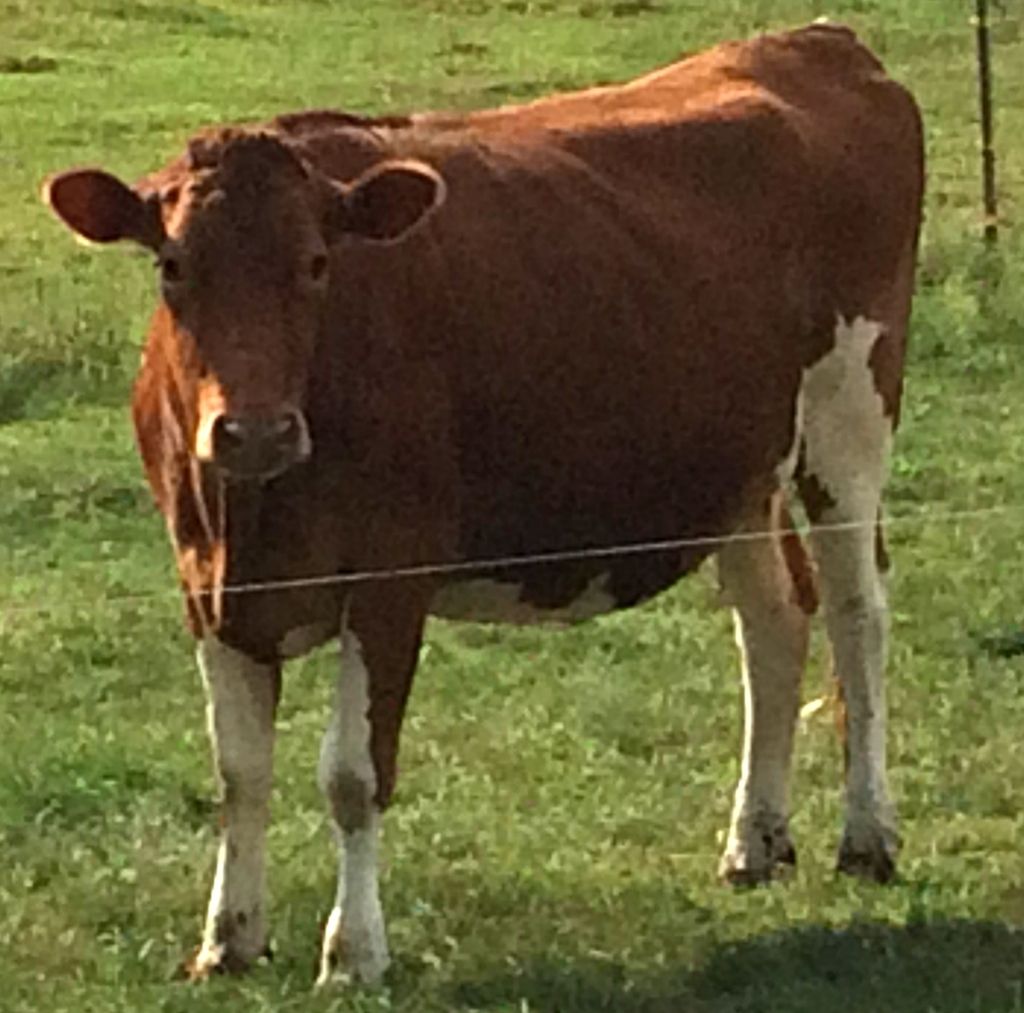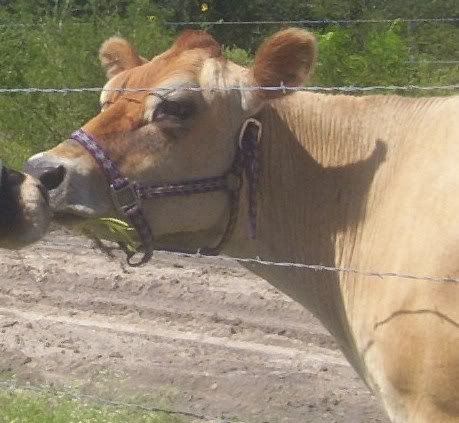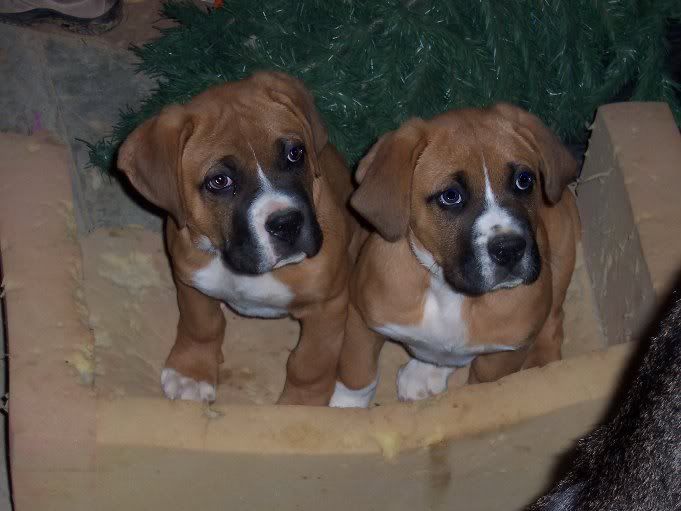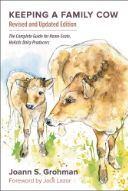Post by Christine on May 27, 2009 5:03:23 GMT -5
This came from the Boston Globe.
Kip
Are you a meat eater? Read this if you dare.
By Bill Williams | May 27, 2009
Jeffrey Moussaieff Masson comes across as a kind man who cares deeply about the mistreatment of animals destined to become food on our plates. He urges readers to investigate what happens to cows, pigs, chickens, and fish before we eat them.
This is not a new theme. Many writers have documented the horrible practices at factory farms and slaughterhouses, but those who consume animal flesh, eggs, and milk generally have chosen to deny or ignore the evidence.
Converts to vegetarianism and veganism cite reasons involving their own health, the health of the animals, and the health of the planet. It's shocking to learn that gases produced by digestion and manure from farm animals contribute as much to global warming as do all transportation combined. Eating meat is the equivalent of driving a large SUV, Masson says.
Vegetarians do not eat meat, chicken, or fish. Vegans go further and refuse all animal products, including cheese, milk, eggs, and butter.
Although the facts about factory farming make for painful reading, a brief summary is still in order.
Baby chicks are separated at birth by sex. Male chicks, which are of no use to egg farmers, are suffocated or crushed in high-speed grinders. The beaks of female chicks are sliced off with a hot blade, causing acute pain. Chickens then are crammed into small cages, with as many as 100,000 birds in a shed. When a hen's egg production declines after a year or so, she is sent to slaughter to be used as pet food.
Cows on factory farms live in cubicles, where they are milked by automatic machines. Calves are separated from their mothers at birth. Male calves are placed in narrow crates to ensure that their flesh stays tender for veal. When a cow's milk production begins to drop at about age 4, the animal is tagged for death. Masson notes that humans are the only species in which adults drink the milk of another species.
Baby pigs' tails and teeth are cut, and the males are castrated, all without anesthesia, causing intense pain. They are confined in cages and pens, where they are fed a high-protein diet so they will reach "slaughtering weight" within four months.
Masson, an American who lives in New Zealand, refers to farm cages as "concentration camps for chickens" and says that "being carnivorous is just cannibalism extended to another species." Yet his overall tone is low-key and persuasive. He does not belittle those who disagree with him and concedes that meat-based diets are deeply entrenched.
He encourages readers to learn more about factory farming and then decide whether they want to change, perhaps by going vegan one day a week to start. Masson calls himself "an aspiring vegan or nearly vegan or mostly vegan" because in some social situations, it would be rude to insist on dishes free of any products derived from animals.
Masson, author of the bestseller "When Elephants Weep," feels "younger, lighter, and happier" since going "mostly vegan." Contrary to a popular misconception, he says, a vegan diet need not be boring.
Aside from ethical and dietary considerations, the specter of galloping global warming is enough to scare anyone. The waste produced worldwide by 2.5 billion - yes, billion - cows and pigs sends tons of heat-trapping methane into the atmosphere. Even more alarming, global meat production is projected to double by 2050, as more developing nations covet a Western lifestyle.
Bill Williams is a freelance writer in West Hartford, Conn., and a member of the National Book Critics Circle.
Kip
Are you a meat eater? Read this if you dare.
By Bill Williams | May 27, 2009
Jeffrey Moussaieff Masson comes across as a kind man who cares deeply about the mistreatment of animals destined to become food on our plates. He urges readers to investigate what happens to cows, pigs, chickens, and fish before we eat them.
This is not a new theme. Many writers have documented the horrible practices at factory farms and slaughterhouses, but those who consume animal flesh, eggs, and milk generally have chosen to deny or ignore the evidence.
Converts to vegetarianism and veganism cite reasons involving their own health, the health of the animals, and the health of the planet. It's shocking to learn that gases produced by digestion and manure from farm animals contribute as much to global warming as do all transportation combined. Eating meat is the equivalent of driving a large SUV, Masson says.
Vegetarians do not eat meat, chicken, or fish. Vegans go further and refuse all animal products, including cheese, milk, eggs, and butter.
Although the facts about factory farming make for painful reading, a brief summary is still in order.
Baby chicks are separated at birth by sex. Male chicks, which are of no use to egg farmers, are suffocated or crushed in high-speed grinders. The beaks of female chicks are sliced off with a hot blade, causing acute pain. Chickens then are crammed into small cages, with as many as 100,000 birds in a shed. When a hen's egg production declines after a year or so, she is sent to slaughter to be used as pet food.
Cows on factory farms live in cubicles, where they are milked by automatic machines. Calves are separated from their mothers at birth. Male calves are placed in narrow crates to ensure that their flesh stays tender for veal. When a cow's milk production begins to drop at about age 4, the animal is tagged for death. Masson notes that humans are the only species in which adults drink the milk of another species.
Baby pigs' tails and teeth are cut, and the males are castrated, all without anesthesia, causing intense pain. They are confined in cages and pens, where they are fed a high-protein diet so they will reach "slaughtering weight" within four months.
Masson, an American who lives in New Zealand, refers to farm cages as "concentration camps for chickens" and says that "being carnivorous is just cannibalism extended to another species." Yet his overall tone is low-key and persuasive. He does not belittle those who disagree with him and concedes that meat-based diets are deeply entrenched.
He encourages readers to learn more about factory farming and then decide whether they want to change, perhaps by going vegan one day a week to start. Masson calls himself "an aspiring vegan or nearly vegan or mostly vegan" because in some social situations, it would be rude to insist on dishes free of any products derived from animals.
Masson, author of the bestseller "When Elephants Weep," feels "younger, lighter, and happier" since going "mostly vegan." Contrary to a popular misconception, he says, a vegan diet need not be boring.
Aside from ethical and dietary considerations, the specter of galloping global warming is enough to scare anyone. The waste produced worldwide by 2.5 billion - yes, billion - cows and pigs sends tons of heat-trapping methane into the atmosphere. Even more alarming, global meat production is projected to double by 2050, as more developing nations covet a Western lifestyle.
Bill Williams is a freelance writer in West Hartford, Conn., and a member of the National Book Critics Circle.

 Fish meal? Manure? Liquid Nitrogen? Compost (made of what???)?
Fish meal? Manure? Liquid Nitrogen? Compost (made of what???)? 













